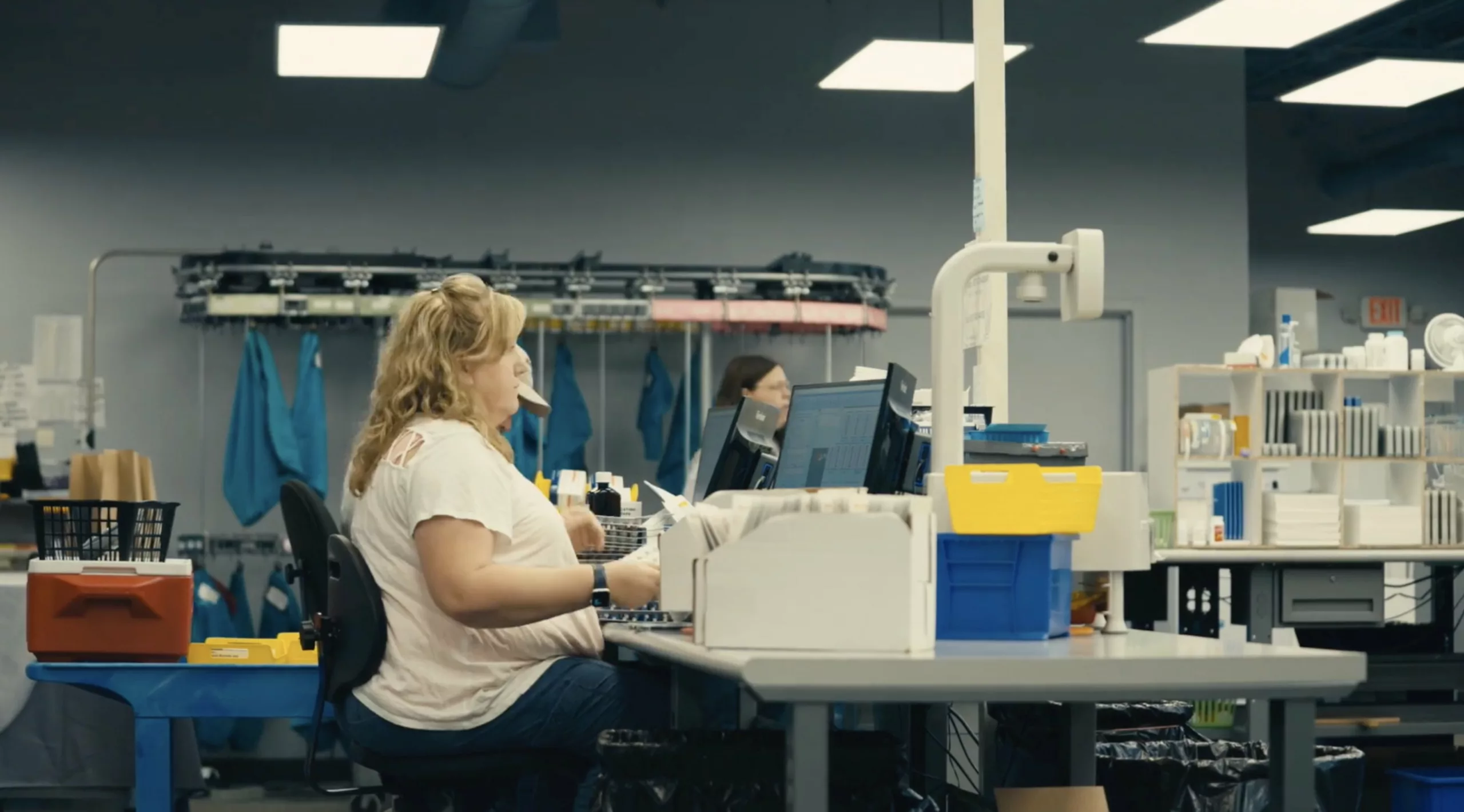
Traditional Methods Are Slowing Down Pharmacy Operations, Increasing Expenses
April 8, 2024
In the fast-paced world of healthcare, pharmacies serve as crucial hubs for dispensing medications and providing essential patient care. However, despite advancements in technology, many pharmacies still rely heavily on manual processes, which can significantly slow down operations and hinder efficiency. In this article, we’ll explore the impact of manual processes on pharmacy operations and discuss the importance of embracing automation for streamlining workflows.
Results of manual processes in the pharmacy
- Increased Workload for Pharmacists: Manual verification processes place a heavy burden on pharmacists, who must meticulously review each prescription to prevent medication errors. This not only leads to increased stress and fatigue but also detracts from valuable time that could be spent counseling patients or collaborating with healthcare providers. Read about how DOSIS Systems can lessen the workload of Pharmacists.
- Higher Operational Costs: Manual processes require more manpower and resources to execute, driving up operational costs for the pharmacy. Increased labor costs, as well as expenses associated with error correction, rework, and compliance efforts, contribute to higher overhead expenses and reduced profitability.
- Limited Scalability: As pharmacies strive to meet growing demands for medication dispensing, manual processes become increasingly unsustainable. Without the scalability offered by automation, pharmacies may struggle to keep up with rising prescription volumes, leading to delays in patient care and decreased customer satisfaction. Read how DOSIS Systems helps increase this pharmacy’s production.
- Risk of Errors and Compliance Issues: Manual processes leave pharmacies vulnerable to errors and compliance issues, which can have serious consequences for patient safety and regulatory compliance. Even the most diligent pharmacists are susceptible to human error, especially when faced with high workloads and time constraints. Read how DOSIS Systems has helped MChest Pharmacy automate production.
- Impact on Patient Care: Ultimately, the greatest casualty of manual processes is patient care. Delays in prescription filling and errors in medication dispensing can have profound effects on patient health outcomes, leading to adverse drug reactions, hospital readmissions, and compromised quality of life.
What should pharmacies do about it?
In light of these challenges, it’s clear that pharmacies must embrace automation to modernize their operations and enhance efficiency. Automated prescription verification systems, such as those offered by DOSIS Systems, offer a solution to the limitations of manual processes. By automating routine tasks and leveraging technology to assist pharmacists in verifying prescriptions, pharmacies can streamline workflows, reduce errors, and improve patient care.

With automated blister-card filling, pharmacists can focus their time and expertise on clinical activities, such as medication therapy management and patient counseling, thus maximizing their impact on patient outcomes. Additionally, automation enhances scalability, allowing pharmacies to adapt to fluctuating prescription volumes and evolving healthcare trends.
In conclusion, the era of manual processes in pharmacy operations is coming to an end. To remain competitive and deliver optimal patient care, pharmacies must embrace automation as a means of streamlining workflows, reducing errors, and enhancing efficiency. By investing in automated prescription verification systems, pharmacies can pave the way for a future where patient safety and quality of care are paramount.
Get started
We’d love to give you a Demo
Seeing is believing with the DOSIS System. See for yourself the value of DOSIS workflow through a full demo of a working system.
Schedule a Demo




